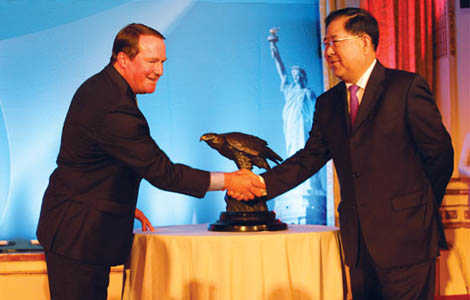Film spotlights 9-Man volleyball
Updated: 2014-08-01 11:52
By Li Ang in New York (China Daily USA)
|
|||||||||
As half-Chinese, half-German descendants growing up in a predominantly white suburb of Boston, Ursula Liang and her brother had never experienced much of their Chinese-American roots until they discovered 9-Man, a popular form of Chinese volleyball played in Chinatowns across North America.
Although Ursula never got the chance to participate in 9-Man during her post-college volleyball playing days (the rules exclude women and non-Asians), she has captured the excitement of the game on film.
9-Man, her independent documentary feature about the sport has been screened since April in Boston, Los Angeles and New York. With audience awards and a special jury prize for best director at the Los Angeles Pacific Film Festival, as well as standing ovations and full houses, 9-Man has been winning over audiences from coast to coast.
Liang took leave from her job as a staff editor at the New York Times Style Magazine and started the five-year project with the team she follows when the major competition - the North American Chinese Invitational Volleyball Tournament (NACIVT) - was held in New York in 2008.
"I'd been waiting, but nobody had done any big story about it here in a decade," Liang said. So, when the tournament came to New York, Liang said she started filming and raised $40,000 on Kickstarter, a crowdsourcing pledge platform in the US.
Having been a journalist working for major media outlets like ESPN, the New York Times and Vogue for years, Liang decided to make 9-Man after learning that the earliest generation of 9-Man players were already in their 90s.

"If I didn't do it, it was possible that they might not be around to tell their stories," she said. "Somebody needed to get them on record."
Explaining why she chose documentary as the medium for exploring the sport, she told China Daily that 9-Man required action to convey its dynamics and there was much to show outside the volleyball courts of the community and culture in Chinatowns.
Making 9-Man didn't always go smoothly, mainly because of the language barrier. Liang speaks no Mandarin or Taishanese - the most popular languages used in Chinatowns. However, after interacting with the community, she was happily surprised to learn that oftentimes Chinatown residents speak English much better than she expected.
"Mainstream media in America have a lack of coverage of immigrant communities because of the language, but that doesn't mean people in Chinatowns don't have interesting stories," Liang added. "As portrayed in the media here, Chinese Americans seem like quite people who don't like to talk, but they are really happy to share, if you take the time to listen."
She admitted she was nervous during the premieres because many 9-Man players were in the audience at the screenings. She worried that some of the nuances she put into the film showing people losing or looking bad were against the Chinese preference for being perfect in public. 9-Man players shattered that stereotype for her.
"It's great, I loved it, 9-Man is complicated but Ursula's movie captured it really well," said Wayne Chow, a Chinese-American accountant who has been playing 9-Man for eight years and is affiliated with the New York Strangers Sports Organization.
"I think everyone at the premiere loved it," said Chow, "whether they knew 9-Man before or not. It's not a standard sport across the country, and it's not recognized in that sense as well, we only started to get exposure due to the 9-Man movie."
One of Liang's goals in making the documentary was to help Chinese in the US reflect upon their self-isolation within American society. She mentioned the historical background of the Exclusion Act.
"The history still speaks for what's happening today, the question we should ask ourselves as Chinese Americans, is it right to keep people from different ethnicities out and repeat what has been done to us?" Liang said.
For audiences of non-Asian heritage, she hopes the documentary helps them understand the Chinese people more.
Liang recalled an elderly white woman remarking after a screening that she had been on the edge of her seat. "Why this is not on ESPN, I don't understand why they are not covering this," she said.
Another audience member came up to Liang and expressed his pride at being Chinese. "Those comments made me really happy, and made it all worth it for me," Liang said.
Liang mentioned the images of Chinese-American men in the film will change the stereotype people have regarding "classic Chinese immigrants" - lack of a sense of humor, working all the time and rigid.
"I interacted with them during the production and I found out what Americans have in mind about Chinese men is not reality at all, instead, I saw incredibly strong, muscular, dynamic 9-Man guys."
Talking about her plans for the near future, she said she'll be working on other documentary projects about Chinese-American communities.
Contact the writer at readers@chinadailyusa.com
For China Daily
(China Daily USA 08/01/2014 page3)
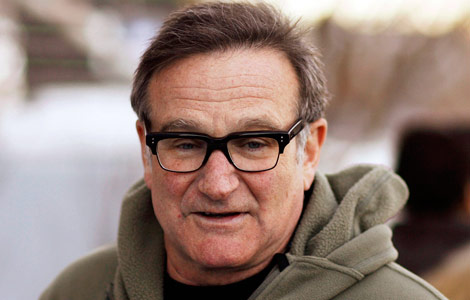
 Sheriff official: Robin Williams killed himself
Sheriff official: Robin Williams killed himself
 Chinese warships visit US navy base after joint drill
Chinese warships visit US navy base after joint drill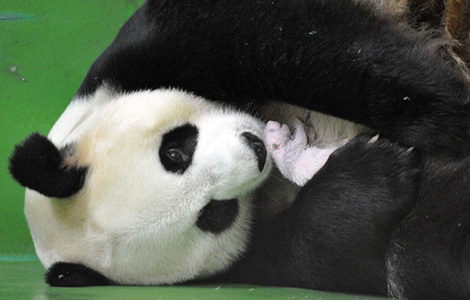
 Unique panda triplets take a bow
Unique panda triplets take a bow
 Drought no trade threat, yet
Drought no trade threat, yet
 Experts join fight against Ebola
Experts join fight against Ebola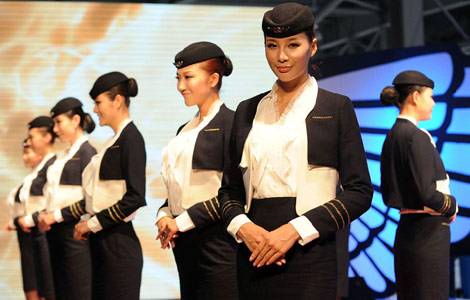
 US airlines hiring more Chinese-speaking cabin crews
US airlines hiring more Chinese-speaking cabin crews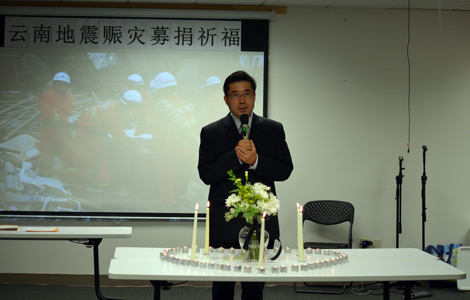
 Funds raised for Yunnan quake
Funds raised for Yunnan quake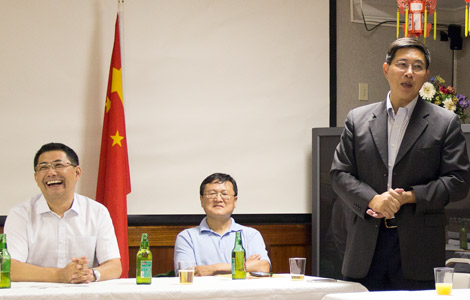
 Ex-consul comes back to Houston seeking talents
Ex-consul comes back to Houston seeking talents
Most Viewed
Editor's Picks

|

|

|

|

|

|
Today's Top News
Deng TV series lifts the lid on key years
Futures consultants see future in China
Menlo Park VC invests in China's medical tourism
Many Chinese economic fugitives still at large in US
Chinese medical supplies arrive in Ebola-affected Sierra Leone
China's Huawei shows interest in LatAm
Kerry: Formation of Iraqi govt critical for stability
Shooting leaves 2 dead, 5 injured in New Orleans
US Weekly

|

|
